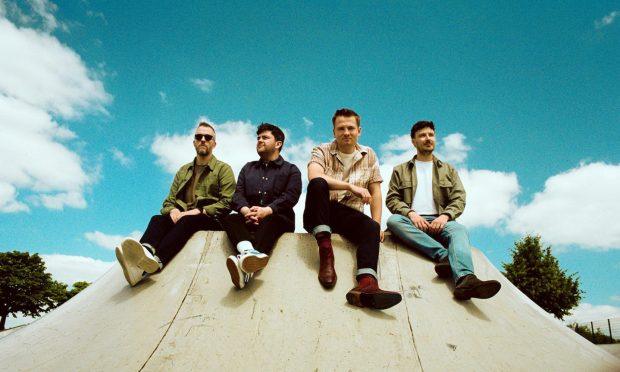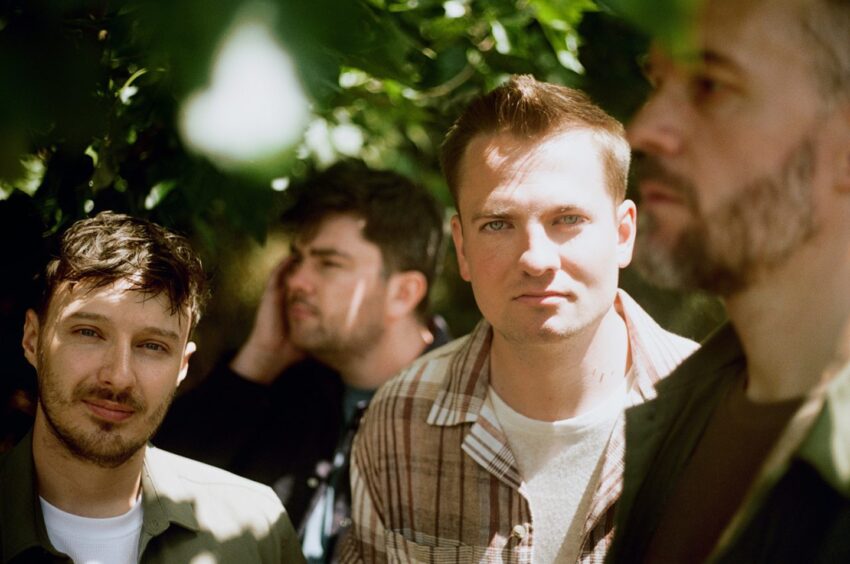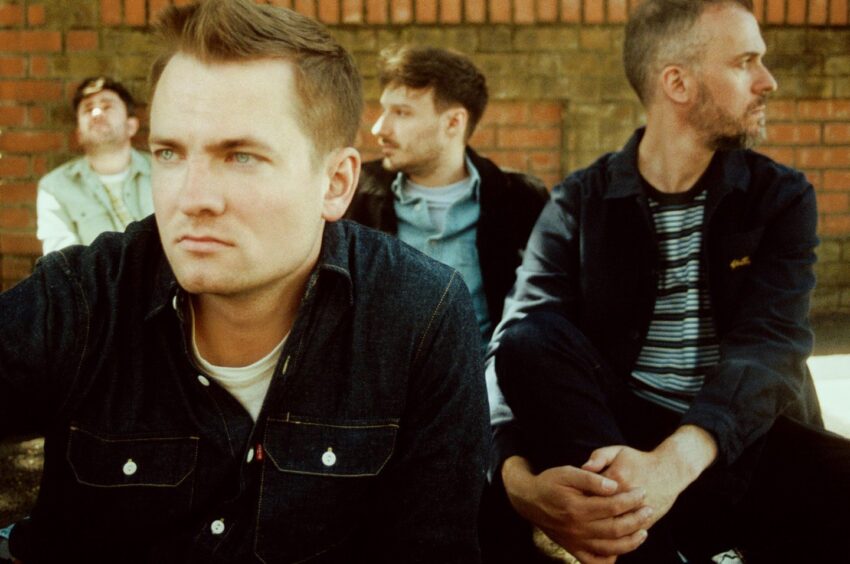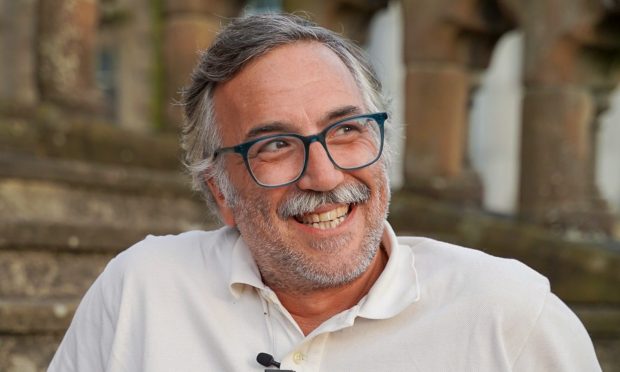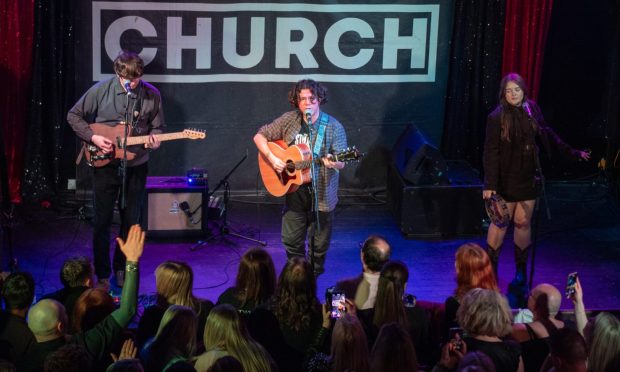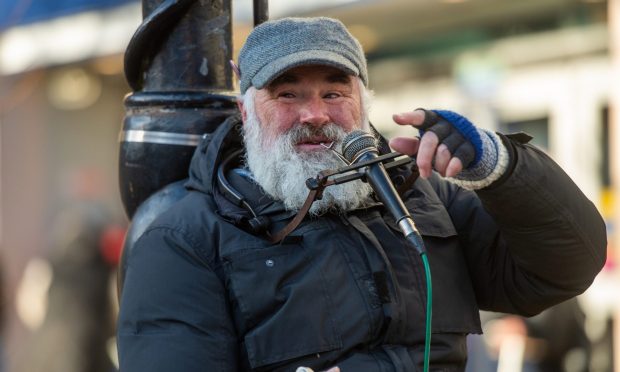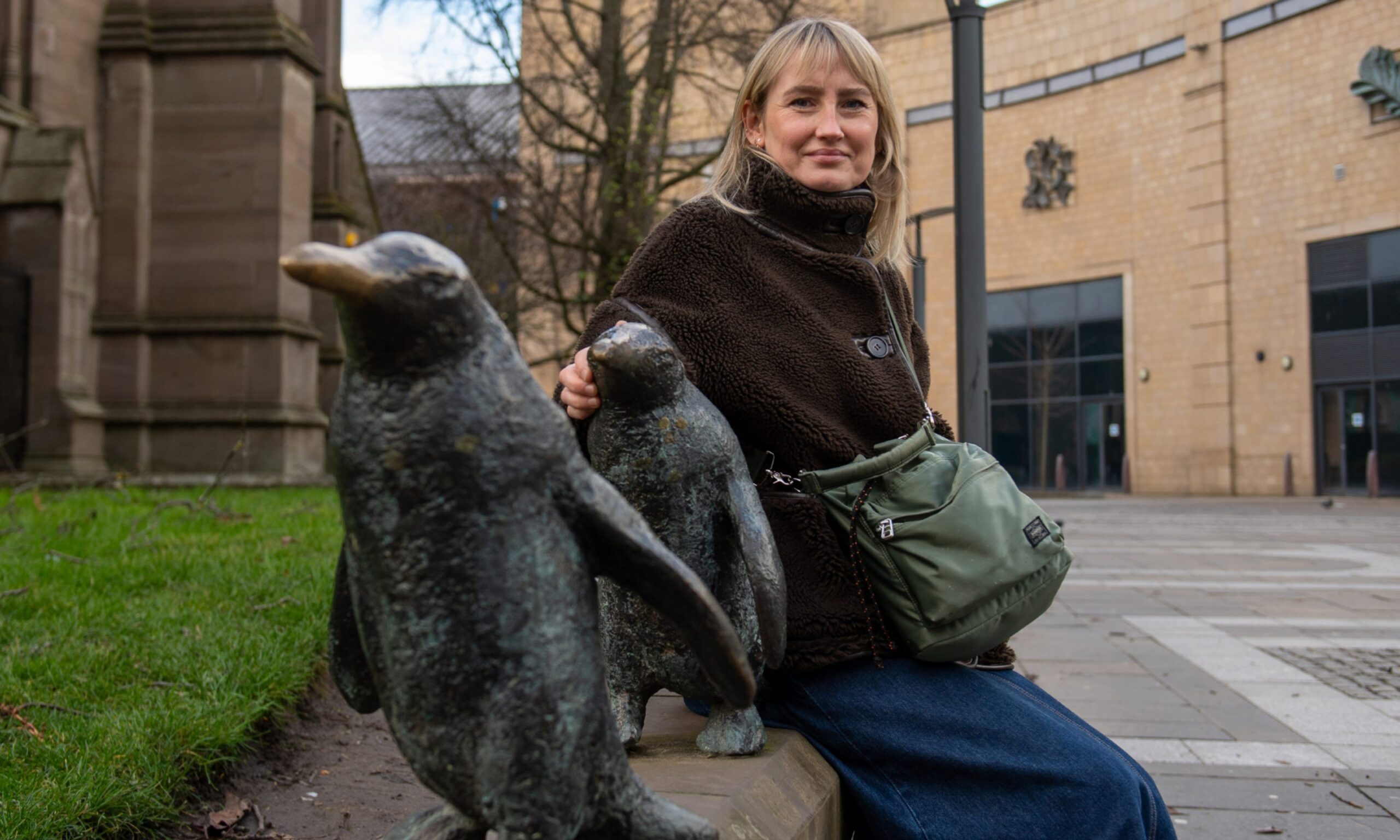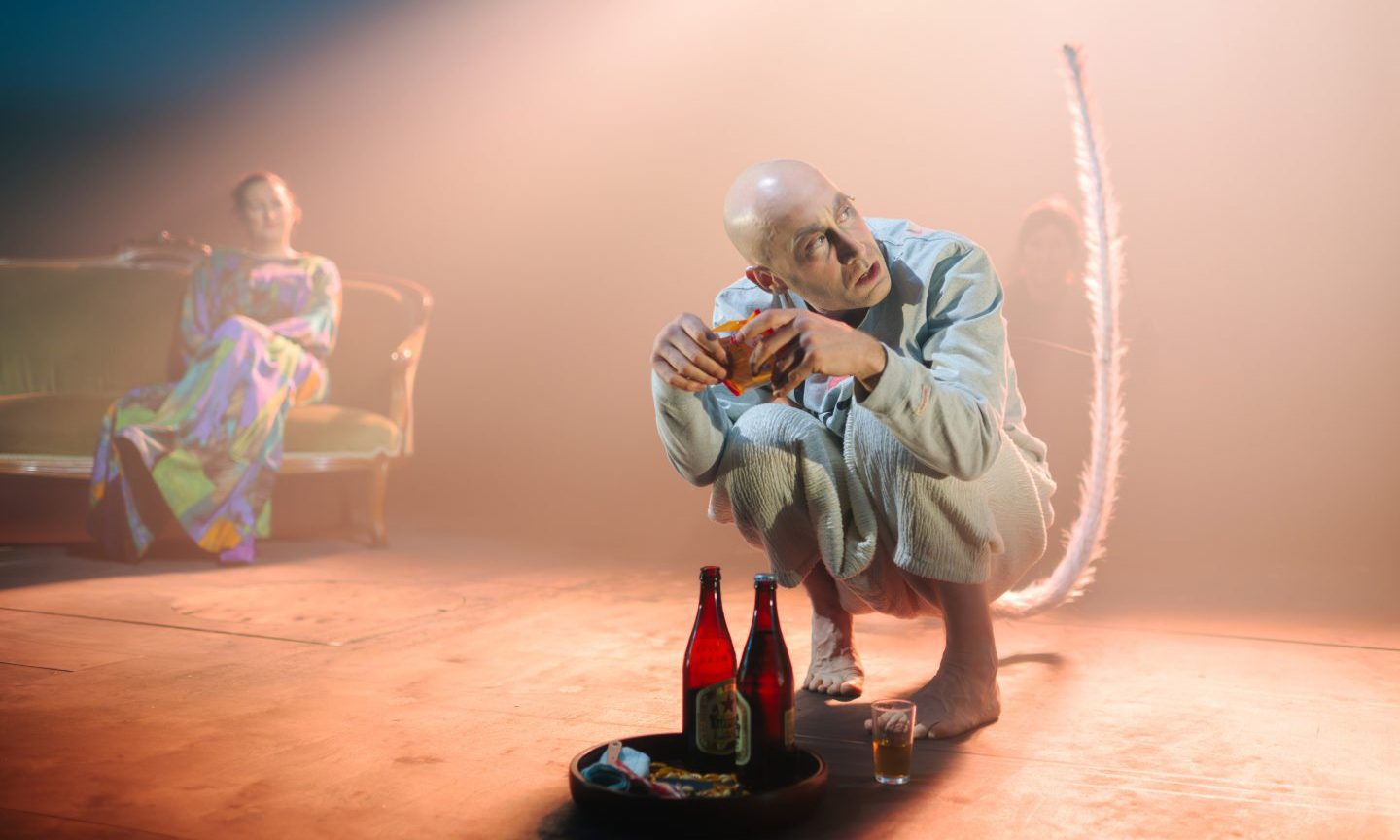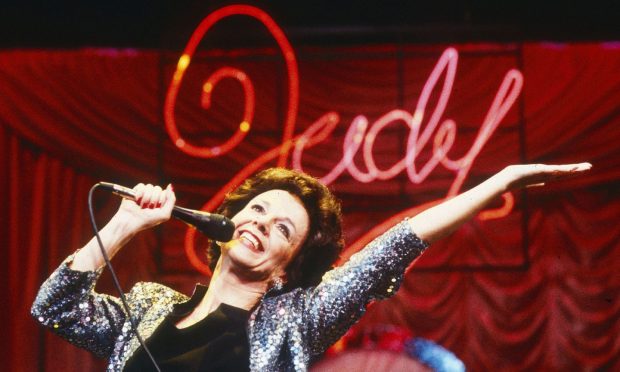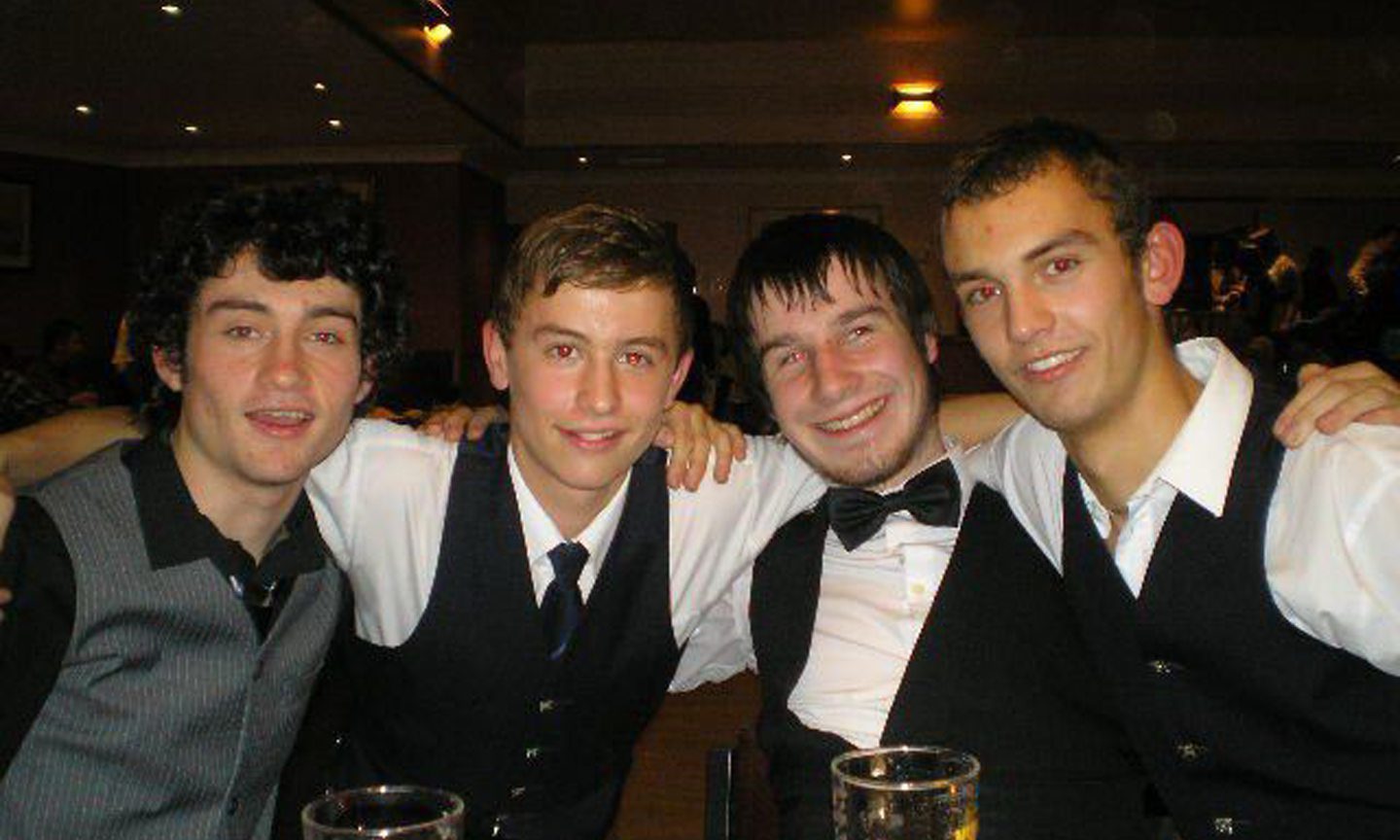Barely two hours before we talk on the phone, Robert Robertson – singer of Glasgow-based folk-rock group Tide Lines – has been told the band’s second of two nights in Germany later this year has sold out.
This means every ticket for their entire European tour has gone.
“I say the whole European tour, it’s four dates,” he acknowledges (they’re in Berlin and Hamburg in Germany, and Amsterdam and Nijmegen in the Netherlands).
“We’ve played in Europe a lot, though, but it’s our first tour where we’ve put on our own nights through promoters. Normally we’ve been over playing festivals, so this is very, very pleasing. We’re really hoping to build on that next year.”
That a group like Tide Lines are making headway outside Scotland, let alone the UK, is some achievement.
They emerged from the Highlands and Islands folk scene, which has been in rude health for some years now – the ongoing success of Glasgow’s Celtic Connections festival is proof of that.
Yet Tide Lines are at the forefront of a new surge of bands breaking through into the mainstream.
‘The culture is thriving among the younger generation’ says Tide Lines singer Robert Robertson
This year’s third album An Ocean Full of Islands was their second sizeable hit in the UK album chart (and their second Scottish No 1 in a row), while their sound is the stuff of radio hits.
By turns bold and yearning, its fusion of big stage rock music with a rootsy folk spin calls to mind Big Country, but the gleaming, contemporary production throws a touch of Coldplay into the mix.
Yet this band are equally at home on the stages of HebCeltFest, the Tiree Festival or Belladrum and the Gathering in Inverness.
“We’re not necessarily a traditional band, but we’ve certainly got that Gaelic element,” says Robertson.
“So it’s great that the culture is thriving among elements of the younger generation.”
The crowds at these festivals, he says, are young, as was the one at Tide Lines’ biggest show to date, on Queen’s Park in Glasgow over the summer.
Robertson puts the success of 2020’s Eye of the Storm (number 12 in the charts) down to Covid times – the fact a lot of other bands pulled their records in the depth of lockdown, while Tide Lines went on a tongue-in-cheek ‘virtual’ world tour, which he performed while locked-down in Fort William.
The extended period without touring in turn gave the quartet (he and his bandmates are Alasdair Turner, Ross Wilson and Fergus Munro) more time to perfect An Ocean Full of Islands, which was unleashed into a record market back to something like normal.
Although it charted a place lower than Eye of the Storm, Robertson considers that a bigger achievement.
Hebridean island inspired new record
The album really came together when the band were reunited in the studio on Mull.
“I wanted to try and write a selection of songs where any one could be the next single, because it sounds like a big-chorus singalong hit,” says Robertson. “There’s no storyline running through the album, but it’s about a sense of place.
“Looking out from where we recorded it onto Bunessan Bay on Mull, it’s loads of little islands dotted about the sea. Then there are wider storylines throughout the songs, about how you can almost feel the world is an ocean full of islands, which are our individual stories and experiences.
“It all relates to place, to the environment where we were brought up and where the album was put together.”
Unlike last time, the band were able to tour this album straight away, and the response has been all they could hope for.
“People had so much energy, because they had been deprived of live music for so long,” says Robertson.
“Our last Glasgow show before lockdown was in the Barrowlands, which was a sell-out at just short of 2,000. Then this summer, Queen’s Park was almost 5,000 tickets.”
Intimate, stripped-back shows call for smaller venues
This tour will be different from the fully electric shows earlier this year.
“We’re incredibly excited about it,” says Robertson. “Obviously I say that every time we go on tour, but this one’s got that extra excitement, because we’re taking a different approach. When we do the kind of tours we did in the spring and through summer, we really throw the kitchen sink at it, in terms of the sound and production levels.
“This time, we’re going to let the songs lead. I hesitate to use the word ‘acoustic’, it’s more stripped-back with a lot of acoustic elements.
“The songs will be taken back to how they were when I wrote them and when we started putting them together, before we added all the different parts of the Tide Lines sound.”
The set will take in music from throughout their career, he says, although it was the treatment of the most recent album’s three lead singles – Rivers in the Light, Written in the Scars and These Days – which inspired the tour.
Soon after the release of each, the band issued acoustic versions to their online audience, which went down a storm on Facebook and YouTube. Yet aside from the occasional concert interlude, these are never heard live.
“The fans obviously have an appetite for this kind of performance, so we decided to put a tour on and go out and let them hear them,” he says.
“That type of gig will only work with an intimate show. There were calls to increase the size of some venues so more people could get tickets, but something would be lost if we did that.
“If I’d bought a ticket to hear any band play acoustic songs in a smaller theatre and they increased capacity, I would feel it wasn’t the gig I originally intended to go to. Part of the experience we’re hoping to create would be lost if we did that.”
Tide Lines play the Gardyne Theatre, Dundee, Wednesday November 1; Perth Theatre, Thursday November 2. The album An Ocean Full of Islands is out now.
